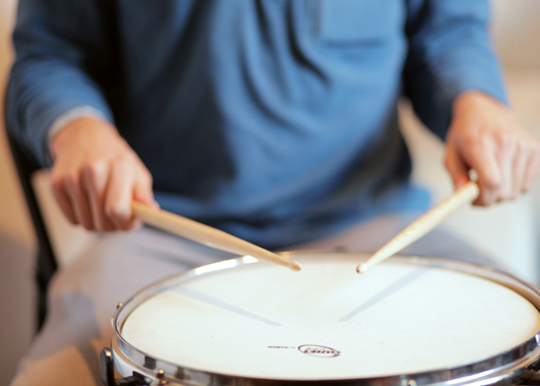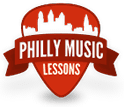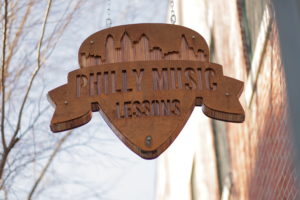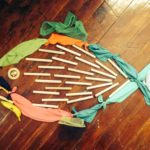
What To Expect – Drum Lessons
“What To Expect – The First 6 Months of Drum Lessons”
By Tom Cullen
So you’ve decided to take some drum lessons. You’re probably wondering what to expect – How often will I have to practice? How long until I begin to see results? The answer to those questions is, well . . . another question. What are your musical goals? All goals are met by a series of smaller goals, and you will have to decide how important progress is to you. Drums can be one of the most difficult instruments to master, but they can also be very easy and fun to play. Most drumming in the music we hear is comprised of just a few, very basic ideas. These basics can be learned within a 6 month period.
The First 6 months of Drum Lessons
The first thing you’ll learn is how to play rhythms between the right and left hand clearly. In order to do that, you will learn how to properly hold the drumsticks. How the drumsticks are held will effect a range of things from, speed, sound, comfort and even avoiding minor injuries (that’s right, you can hurt yourself!). To get a good feel for handling the sticks, you will need a consistent practice of 15-120 mins a day. Working on control of the sticks will also give you an introduction to reading music. Learning to read will begin to feed your imagination with a vocabulary of rhythms and stimulate creative ideas. Learning the language of rhythm helps us to understand and decipher the music we enjoy listening to.
After about 6 weeks, you will begin coordinating your feet with your hands. This is usually done by adding the bass drum, which is played by your foot using a pedal device. You’ll be doing 3 things at once. At this point you will also be learning the basic concepts of drumming, common in most of the music we hear.
The first concept is unison. Unison is when two parts of the drumset are played together at the same time. The next idea is “2 over 1” – when one drum plays two notes and the other drum plays one. The final concept is the single stroke. The most common use of the single stroke is during a drum fill, but single strokes happen more often than we notice. They usually occur between a cymbal and snare drum or a cymbal and bass drum during the song’s “groove”.
Most drumming you hear is that simple! The trouble for most students is accepting that learning an instrument is a process (remember, all goals are met by a series of smaller goals?). If you make practice a part of your weekly routine, progress will be natural and easy to see and hear. If you follow your path consistently, and with the help from the right teacher, the first 6 months of drum lessons will allow you to play most of your favorite music.
Of course, after that, there is still much to learn. For example, though basketball is a simple sport consisting of 3 things (dribbling, passing and shooting), the best basketball players have perfected these techniques with strength, style and finesse. Perfection is a process, full of trial and error. Playing drums is a craft. Over time you will “sculpt” your own style and sound to where it becomes a direct extension of your musical ideas. Possessing the basic building blocks of drumming will allow you to pursue your own, original take on the instrument. Don’t forget – you get in what you put in.
“I would like students to understand that the learning process takes time. Practice as slowly as possible, because the slower you practice, the faster you learn.”
-Bernard “Pretty” Purdie (The Guinness Book of World Records Most Recorded Drummer of All Time)



